NAVIGATION COLUMN
Home Page
The Keninger Archives
The Propagander
Yahoo Groups:
History 1 Day 2
Nuremburg Data
Daily History Pages:
FAIR USE NOTICE: This site could contain copyrighted material the use of which has not always been specifically authorized by the copyright owner. We are making such material available in our efforts to advance understanding of historical, political, human rights, economic, democracy, scientific, environmental, and social justice issues, etc. We believe this constitutes a 'fair use' of any such copyrighted material as provided for in section 107 of the US Copyright Law. In accordance with Title 17 U.S.C. Section 107, the material on this site is distributed without profit to those who have expressed a prior interest in receiving the included information for research that could include educational purposes. If you wish to use copyrighted material from this site for purposes of your own that go beyond 'fair use', you could most likely need to obtain permission from the copyright owner.
|
August 22

0565 St Columba reports seeing a monster in Loch Ness, the first reported sighting.
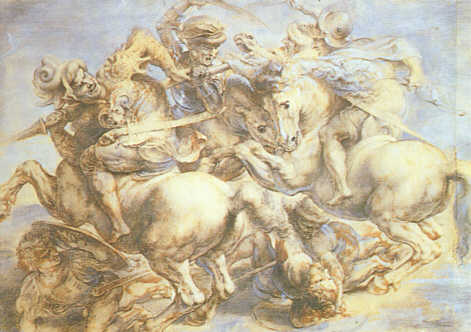
1138 The English defeat the Scots at Cowton Moor. Banners of various saints are carried into battle, which leads to its being called the Battle of the Standard.
1350 John II, also known as John the Good, succeeds Philip VI as king of France.
1454 Jews are expelled from Brunn Moravia by order of King Ladislaus.

1485 Richard III of England is defeated and killed at The Battle of Bosworth Field, the last of the Wars of the Roses between the Houses of Lancaster and York. With Richard III death, it is the last of the Plantagenets, and heralds the beginning of the Tudors with Henry VII.
1567 The Duke of Alba, sent to re-establish Spanish authority in the Netherlands, institutes the Council of Troubles at the start of his tyrannical rule. It is nicknamed the 'Council of Blood'.
1642 Civil war in England begins as Charles I declares war on Parliament at Nottingham.
1647 Birth: Denis Papin, inventor of the pressure cooker.
1670 In Massachusetts, English-born colonial missionary John Eliot, aged 66, founds an Indian church at Martha's Vineyard, with educated Indians Hiacoomes and Tackanash appointed pastor and teacher, respectively.
1717 The Austrian army forces the Turkish army out of Belgrade, ending the Turkish revival in the Balkans.

1770 Captain James Cook lands in Australia and claims it for the British crown.

1775 US Revolutionary War: King George III proclaims the colonies to be in open rebellion.
1777 US Revolutionary War: With the approach of General Benedict Arnold's army, British Colonel Barry St. Ledger abandons Fort Stanwix and returns to Canada.

1787 John Fitch demonstrates the first successful steamboat, launching a forty-five-foot craft on the Delaware River in the presence of delegates from the Constitutional Convention. He will go on to build a larger steamboat which will carry passengers and freight between Philadelphia and Burlington, New Jersey.

John Fitch constructed four different steamboats between 1785 and 1796 that successfully plied rivers and lakes and demonstrated, in part, the feasibility of using steam for water locomotion. His models utilized various combinations of propulsive force, including ranked paddles (patterned after Indian war canoes), paddle wheels, and screw propellers. While his boats were mechanically successful, Fitch failed to pay sufficient attention to construction and operating costs and was ultimately unable to justify the economic benefits of steam navigation. Note: Firch should rightfuly be known as the father of steam navigation, as Fulton did not build his first steamboat until after Fitch's death.
1788 The British settlement in Sierra Leone is founded 'to provide a home in Africa for freed slaves and homeless Africans from England.'
1791 The Haitian Revolution begins.
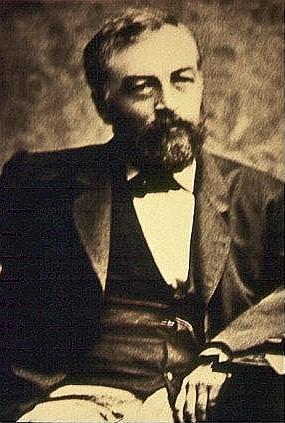
1834 Birth: Samuel Langley, pioneer in aviation. Died in 1906.

1836 Birth: Archibald Willard, US artist (Spirit of '76). Died in 1918.
1846 Manifesting Destiny: The US annexes New Mexico.
1849 The Portuguese governor of Macao, China, is assassinated because of his anti-Chinese policies.
1851 Gold fields are discovered in Australia.
1864 The first Geneva Convention for the Amelioration of the Condition of the Wounded and Sick in Armed Forces in the Field is signed by 12 countries. The international treaty, known as the Geneva Convention, also guarantees the neutrality of members of the Red Cross. Jean Henri Dunant, one of the Red Cross founders, is instrumental in the Convention's passage.
1865 William Sheppard of New York City patents liquid soap.
1867 Birth: Charles Jenkins, inventor of the conical drinking cup and airplane brakes.
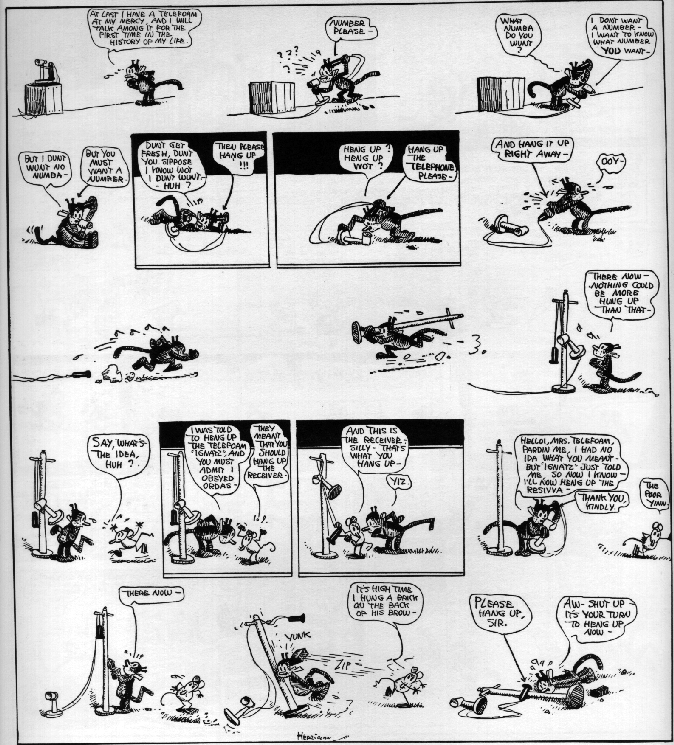
1880 Birth: George Herriman, cartoonist, creator of Krazy Kat. Died in 1944.
1881 American humanitarians Clara Barton and Adolphus Solomons found the American National Red Cross, an organisation designed to provide humanitarian aid to victims of wars and natural disasters in congruence with the International Red Cross.
1891 Birth: Jacque Lipchitz, sculptor.
1893 Birth: Dorothy Parker [Rothschild], author, critic, poet, satirist and founding member of the Algonquin Round Table (1958 Marjorie Peabody Award). Died in 1967.
1902 Teddy Roosevelt becomes the first American president to ride in an automobile, in Hartford, CT.

1902 Birth: Leni Riefenstahl.
1904 Birth: Deng Xiao Peng, Chinese leader from 1977 to 1987, held nominal leadership position until his death in 1997.
1908 Birth: Henri Cartier-Bresson, photographer.

1910 After defeating the Russians over Manchuria, imperial Japan turns a hungry eye on Korea, the strategically important, underdeveloped kingdom to its west. On this day, Japan formally annexes its powerless protectorate. Japan had been eyeing Korea since 1905, when it first forced Korean ministers to sign documents that made Korea a Japanese protectorate.

Japan assumed control of Korea's internal administration and foreign policy. Two years later, Korean Emperor Kojong was forced to give up the throne to his more compliant son, Sunjong. The judiciary fell to Japanese control, followed by the police force. In 1910, The Korean-Japanese Treaty, by which Korean rights of sovereignty were given to the Japanese, was announced. Japan unleashed a reign of terror to ensure that violent protest and revolts like those of 1905 and 1907 did not repeat. Troops patrolled Seoul, the capital; censors removed anti-Japanese stories from the Korean newspapers; police cracked down on Korean nationalistic organizations. Japan had become the strongest power in Asia. Meanwhile, the people of Korea, primitively armed and politically suppressed, read the posted official announcements, saw Japanese sentries everywhere, and suffered the resignation of the powerless government.
1911 It is announced that the world's most famous portrait, Leonardo da Vinci's Mona Lisa has been stolen from the Louvre museum in Paris and that the hunt for the thieves had begun in the early hours of the morning. The museum spokesman also said that only a madman would try to steal, and hope to sell such a well-known image. It is mystery how the thief managed to get in and out of the museum unnoticed. Leornado painted this portrait, also known as La Giaconda, around 1503 when he was working in Florence. The French King Francois I purchased it soon after, and since then the painting has always been hung in one of the French royal palaces. The French police arrested gothic poet Guillaume Apollinaire. He was charged with receipt of stolen property. But the space on the wall of the Louvre remained empty for at least two more years. Then, on 13 December 1913, Mona Lisa was found, undamaged, in the city of its origin. It seems that another Florence artist, this one of the 20th century, Vincenzo Perrugia, had been arrested for stealing the painting. Vincenzo allegedly tried to sell the painting to an antique dealer. Painted at the beginning of the 16th century, Mona Lisa is believed to be the portrait of Lisa di Noldo Gherardini, wife of Florentine nobleman Francesco del Giocondo. Today the Mona Lisa is behind bullet-proof glass in the Louvre Museum.
1914 WW1: Two German armies strike Gen. Charles Lanrezac southwest of Namur, on the Sambre River, forcing him to retreat on the 23rd.

1920 Birth: Ray Bradbury, in Illinois, science-fiction writer whose works include Farenheit 451 and The Martian Chronicles, Illustrated Man.
1922 Irish politician and Sinn Fein leader Michael Collins is killed in an ambush. Note: He had been largely responsible for the 1921 Anglo-Irish treaty.
1933 The Gestapo suspends Centralverein Zeitung publication. (Edelheit)

1934 Birth: H. Norman Schwarzkopf, in New Jersey, US Army General who will be commander of the coalition forces during the first Persian Gulf War.
1939 -10: Neville Chamberlain writes a letter to Hitler, warning him the German-Soviet Agreement will not alter Britain's obligation to come to the aid of Poland. Note: Hitler will remain convinced that Chamberlain is bluffing, as he will also misjudge Neville's successor.

1939 -10: Chamberlain puts gives a fighting speech, to be broadcast by the BBC, saying it is unthinkable that Great Britain should not carry out its obligations to Poland.
1939 -10: Sir William Seeds, British Ambassador in Moscow, accuses Molotov of negotiating in bad faith.
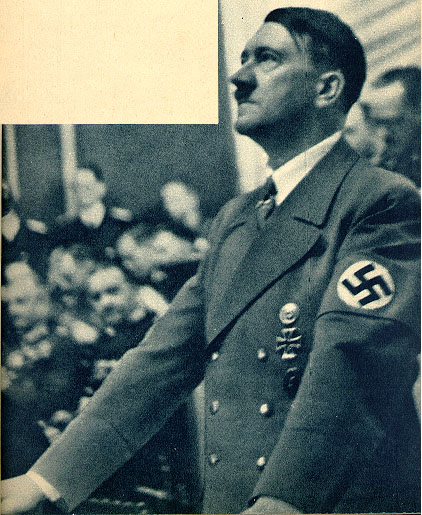
1939 -10: At Obersalzburg, Hitler tells his generals that the destruction of Poland "starts on Saturday morning" (26 August), the aim of this war is the wholesale destruction of Poland. (Note: Hitler proclaims to the commanders of the armed services: "Our strength is in our quickness and our brutality. Genghis Khan had millions of women and children killed by his own will and with a gay heart. History sees him only as a great state builder... Thus for the time being I have sent to the East only my "Death's Head Units" with the order to kill without pity or mercy all men, women, and children of Polish race or language. Only in such a way will we win the vital space that we need. Who still talks nowadays of the extermination of the Armenians?") (Architect)
1939 Church and Reich: Aug 22-24 The Fulda Bishop's Conference of 1939 includes the bishops of Austria and the Sudetenland for the first time. All are aware of the "Top Secret" instructions of July 17. (Lewy)
1941 Barbarossa: Guderian flies to see Hitler, to convince him of the need to drive on Moscow. Hitler refuses, stating, "my generals know nothing about the economic aspects of war." The drive south continues. (Clark II)
1941 Holocaust: The remaining 90 Jewish children held in the village of Byelaya Tserkov, most of them infants under the age of five, are executed after the action is officially condoned by the Wehrmacht. (Days)
1941 WW2: Major Ivan Kononov, commander of the 436th Regiment, and his entire regiment of Cossacks defects to the Germans after launching a successful counterattack against them. Kononov's was the first of many Cossack units to change sides during the war. By the fall of 1942 more than 200 Cossack battalions and regiments fought alongside the German army. (Huxley-Blythe)
1942 After U-boats sinks several Brazilian ships, Brazil declares war on Germany and Italy. Two years later Brazil will send the 'Brazilian Expeditionary Force' to Italy, the only South American country to send combat forces to Europe.
1944 Diary of Leon Gladun: (Italy) We were misled. We wait at our position for several hours. The reconnaissance party left in the morning but it turned out that there was a medium [...] stationed in our area. Finally at 18:00 hours we left for our new position: a field with a couple of trees and nothing else. But luckily we won't be here for long judging by the gun layers. Today I was picked to go on a trip to Rome. About 25 are going.
1944 WW2: The defeat of Falaise-Argentan breaks the back of the Nazi defenses in France. The Allies capture more than 100,000 prisoners.
1944 WW2: German officer Heinz Stahlschmidt blows up a bunker full of detonators, effectively preventing the destruction of Bordeaux by the retreating German army.
1945 The Japanese Kwantung Army in Manchuria surrenders to the Soviets.

1945 Conflict in Vietnam begins when a group of Free French parachute into southern Indochina, in repsonse to a successful coup by communist guerilla Ho Chi Minh.
1953 The infamous French prison, Devil's Island, releases its last inmate.
1956 President Eisenhower and Vice President Nixon are renominated by the Republican convention in San Francisco.
1959 Stephen Rockefeller marries the maid.
1962 The USS Savannah, the world's first nuclear-powered ship, completes her maiden voyage from Yorktown, Virginia, to Savannah, Georgia.
1963 NASA civilian test pilot Joe Walker in an X-15, reaches 67 miles (106 km) altitude.
1967 President Lyndon B. Johnson welcomes the Shah of Iran to the US for a two-day visit. Two months later, Mohammed Reza Shah Pahlevi is crowned King of Kings. One of the Shah's major proclamations provides for a general amnesty for political prisoners overflowing Iran's jails.
1968 Prague Spring: Russian and East European forces continue thier invasion of Czechoslovakia after leader Alexander Dubcek had tried to create a more democratic society.
1971 Bolivian President General Juan Jose Torres Gonzalez is deposed in a coup by Colonel Hugo Banzer Suarez, who draws support from the right-wing Falange Socialista Boliviana and the army.
1972 The Republican party renominates Richard M. Nixon (President of US) and Spiro T. Agnew (Vice-President) in Miami, Florida.
1972 Rhodesia is asked to withdraw from the 20th Olympic Summer Games due to its racial policies.
1973 Henry Kissinger is named Secretary of State by US President Nixon, replacing William Rogers.
1978 Death: Jomo Kenyatta, president of Kenya, aged 83.
1978 In Nicaragua, Sandinista guerrillas take over the National Palace for three days, killing six and taking several hundred hostages.
1984 The last Volkswagen Rabbit rolls off the assembly line in Westmoreland, PA. Note: Over 11 million of the nasty little cars had been produced.
1984 The Repuplican convention in Dallas renominates President Reagan and Vice President Bush.

1986 The Kerr-McGee Corporation agrees to pay the estate of nuclear industry worker Karen Silkwood more than $1 million, ending a 10-year legal battle waged by her family over her exposure to radioactive materials at the company's plant.
1986 NASA announces tests designed to verify ignition pressure dynamics.

1988 Australia unveils the first platinum coin (Koala).
1989 Huey P. Newton, co-founder of the Black Panthers, is shot to death in Oakland, California.

1989 The first complete ring around Neptune is discovered by Voyager 2.
1990 Desert Shield: US President Bush signs an order for calling reservists to aid in the build up of troops in the Persian Gulf.
1990 Desert Shield: The US State Department announces that the U.S. Embassy in Kuwait will not be closed under President Saddam Hussein's demand.
1990 Angry smokers block a street in Moscow to protest the summer-long cigarette shortage.
1991 It is announced by Yugoslavia that a truce ordered on August 7 with Croatia has collapsed.
1991 Soviet President Mikhail S. Gorbachev returns to Moscow after the collapse of a hard-liner coup. Gorbachev refuses to join Russian Republic president Boris Yeltsin in holding the Communist parliament responsible for the coup. On the same day he purges the men that had tried to oust him. Note: Pugo is said to have committed suicide.
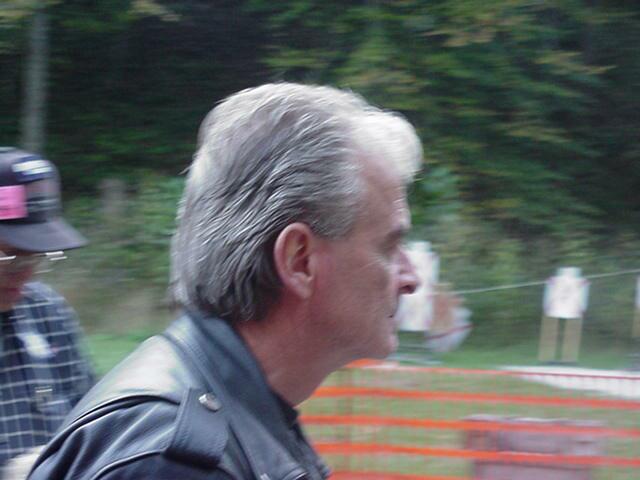
1992 In the second day of a standoff at Randy Weaver's remote northern Idaho cabin, FBI sharpshooter Lon Horiuchi wounds Randy Weaver, Kevin Harrison, and kills Weaver's wife, Vicki. Randy Weaver, a white separatist, had been targeted by the federal government after failing to appear in court to face charges related to his selling of two illegal sawed-off shotguns to an Alcohol, Tobacco and Firearms (ATF) informant. On 21 August 1992, after a period of surveillance, US marshals came upon Harrison; Weaver; Weaver's 14-year-old son, Sammy; and the family dog, Striker, on a road near the Weaver property. A marshal shoots and kills the dog, prompting Sammy to fire at the marshal. In the ensuing gun battle, Sammy and US Marshal Michael Degan are shot and killed. A tense standoff ensues, and on this day the FBI joins the marshals besieging Ruby Ridge. Later in the day, FBI sharpshooter Lon Horiuchi, waiting 200 yards away, opens fire, wounding Harrison and killing Vicki Weaver, who is holding the door open with one hand and cradling her infant daughter with the other. Horiuchi claims he didn't know that Vicki Weaver is standing behind the door. Harris, Weaver, and Weaver's three daughters surrender nine days later. The controversial standoff spawns a nationwide debate on the use of force by federal law enforcement agencies, and a US Senate panel accuses the federal agencies involved of 'substantial failures' in their handling of the Ruby Ridge operation. Rumours that the FBI had engaged in a cover-up regarding the Ruby Ridge operation are verified when E. Michael Kahoe, former chief of the FBI's violent crimes section, pleads guilty to obstruction of justice in 1996. Kahoe, who had destroyed an official bureau critique of the standoff, is sentenced to 18 months in prison.
1992 In Rostock, Germany, neo-Nazi violence breaks out against foreigners.
1994 Jordan, overwhelmed by a flood of refugees, closes its border to arrivals from Kuwait and Iraq.
1995 Parliament elects Negaso Gidada as president of the newly-named Federal Democratic Republic of Ethiopia.
1995 Representative Mel Reynolds, D-Illinois, is convicted of having sex with an underage girl. He later resigns his office, effective 1 October.
1996 The 61-nation Conference on Disarmament in Geneva ends in failure after India blocks an agreement on a Comprehensive Nuclear Test Ban Treaty.
1997 A judge schedules the trial of Paula Jones's sexual harassment lawsuit against President Clinton to begin in May 1998. The suit is later thrown out before the trial even begins.
1997 US Federal officials order a new election for president of the Teamsters Union after determining that the campaign of winner Ron Carey had received illegal contributions.
2000 Troops are back on the streets of Belfast for the first time in two years after a loyalist feud explodes into gun battles with the police.
2001 Hundreds more British troops are preparing to leave for Macedonia after Nato orders them to begin collecting weapons from Albanian rebels.
2004
 2004 2004

^ Top of Page ^
Click Here to email the Webmaster of this site.
Web Page Design by Nathan
This page was last updated on August 19, 2005
|
